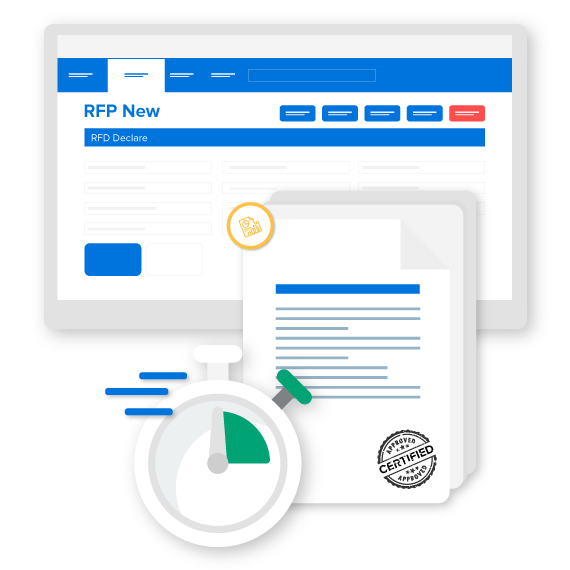
15 Nov
Introduction:
Freight management software (FMS) is a pivotal tool in the logistics industry, orchestrating the intricate dance of transporting goods from origin to destination. This software serves as a digital conductor, optimising the planning, execution, and monitoring of freight movements. Its role extends beyond mere automation, fostering efficiency, cost reduction, and heightened visibility throughout the supply chain. By seamlessly integrating diverse logistical functions, this technology empowers businesses to navigate complexities, minimize errors, and expedite deliveries. In this era of global commerce, the advantages of employing freight management software are manifold, ensuring streamlined operations, cost-effectiveness, and a transparent, responsive logistics ecosystem.
Key Features of Freight Management Software:
- Shipment Planning and Optimisation: Efficient freight management software excels in strategic planning, optimising shipment routes, and ensuring timely deliveries. It considers factors like cargo size, destination, and mode of transportation to maximize efficiency.
- Carrier Management and Freight Negotiation: This feature facilitates seamless collaboration with carriers. It includes tools for negotiating freight rates, managing carrier relationships, and selecting the most cost-effective and reliable transportation partners.
- Real-time Tracking and Visibility: Providing real-time visibility into the movement of goods, this feature enables stakeholders to monitor shipments, anticipate potential issues, and make informed decisions to ensure on-time deliveries.
- Route Optimisation and Fuel Management: By analysing data and considering various parameters, the software optimises routes, minimizing transit time and reducing fuel consumption. This contributes to cost savings and environmental sustainability.
- Data Analytics and Reporting: Robust freight management software incorporates data analytics tools, offering insights into key performance indicators. Comprehensive reporting functionalities aid in assessing performance, identifying trends, and making informed decisions for continuous improvement in logistics operations.
Types of Freight Management Software:
- Cloud-based Freight Management Software: Leveraging the power of cloud computing, this type of freight management software operates online, offering flexibility and accessibility from any location. It allows real-time collaboration, automatic updates, and scalability without the need for extensive on-site infrastructure.
- On-premise Freight Management Software: On-premise freight management software is installed and maintained locally on a company’s servers and computer systems. This type provides greater control over the software but may require higher initial investments in hardware and IT infrastructure.
- Enterprise Freight Management Software: Tailored for large-scale operations, enterprise-level freight management software is designed to handle complex logistics requirements. It often integrates with other enterprise systems, providing a comprehensive solution for managing extensive supply chain networks.
- Small-to-Medium Sized Business Freight Management Software: Specifically crafted for the needs of smaller businesses, this type of freight management software offers essential features for managing freight operations on a more modest scale. It provides a cost-effective solution without overwhelming features for businesses with limited resources.
Implementation of Freight Management Software:
- Assessing the Needs of the Organisation: Before implementation, a thorough assessment of the organisation’s logistics requirements is crucial. This involves understanding current workflows, identifying pain points, and establishing specific objectives to ensure the chosen Freight Management Software (FMS) aligns with business goals.
- Selecting the Right Freight Management Software Solution: Careful consideration is given to selecting a Freight Management Software that best suits the organisation’s needs. This involves evaluating features, scalability, and compatibility with existing systems. The chosen solution should address current challenges while accommodating future growth.
- Integrating the Freight Management Software with Existing Systems: Seamless integration with existing systems is paramount for a smooth transition. The Freight Management Software should integrate with other business applications, such as ERP and CRM systems, to create a unified and efficient logistics ecosystem.
- Training Employees on the New System: Successful implementation requires thorough training of employees. Training programs ensure that staff members are proficient in using the new Freight Management Software, maximizing its benefits. This step is crucial for minimizing disruptions and optimizing productivity during the transition period.
Future Trends in Freight Management Software (FMS):
- The Rise of Artificial Intelligence (AI) and Machine Learning (ML) in FMS: As technology advances, the integration of AI and ML is becoming a pivotal trend in FMS. Predictive analytics and intelligent decision-making algorithms enhance route optimisation, demand forecasting, and risk management. This evolution empowers FMS to adapt dynamically to changing logistics scenarios, optimising efficiency and resource utilization.
- Integration of FMS with Other Supply Chain Management (SCM) Systems: Future FMS trends involve deeper integration with broader SCM systems. This seamless collaboration ensures end-to-end visibility, from procurement to delivery. By connecting FMS with inventory management, order processing, and other SCM components, businesses can create a unified and responsive supply chain ecosystem, improving overall operational coherence.
- Growing Demand for Cloud-Based FMS Solutions: Cloud-based FMS solutions are gaining prominence due to their flexibility, scalability, and accessibility. The future sees an increased demand for these solutions as businesses seek to harness the benefits of real-time collaboration, automatic updates, and cost-effective scalability. Cloud-based FMS facilitates smoother implementation, reduces maintenance complexities, and ensures that businesses stay agile in the face of evolving logistical challenges.
Conclusion:
In conclusion, Freight Management Software (FMS) stands as a cornerstone in the modern logistics industry, driving efficiency, transparency, and cost-effectiveness. The dynamic landscape of global trade necessitates adaptable solutions, and FMS emerges as a catalyst for streamlined operations. Its role in optimising routes, enhancing visibility, and integrating seamlessly with supply chain processes is indispensable. For those seeking deeper insights and exploration of FMS solutions, resources such as industry reports, vendor documentation, and case studies offer valuable information. Embracing FMS not only addresses current logistical challenges but positions businesses to thrive in the ever-evolving terrain of international commerce.


